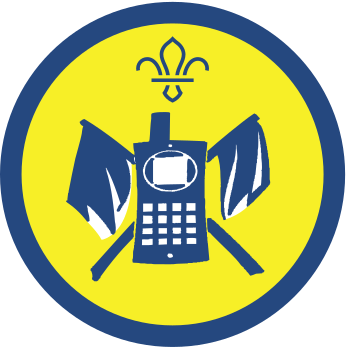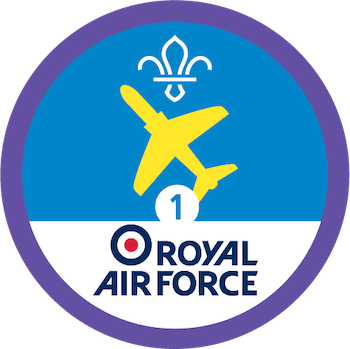
Chase the ace
You’ll need
- Chalk
- Masking tape
To watch in full screen, double click the video
Learn the phonetic alphabet
- The person leading the game should say the letters ‘m’ and ‘n’, then the letters ‘f’ and ‘s’.
- Everyone should notice how similar they sound, and how it might be difficult to tell them apart. When could this be really important (for example, in a grid reference, a code, or an aircraft’s number)?
- The person leading the game should give out copies of the phonetic alphabet, so everyone can see one.
- Everyone should read through the alphabet together, so they know how to say all of the words.
- Everyone should look at the words for each letter in their name, so they know what to listen out for.
Chase the ace
- The person leading the game should mark two separate areas to be the two hangars. They should be opposite each other.
- Split into two groups. One group should stand in each hangar.
- The person leading the game should choose one or two people to be the air traffic controllers. Everyone else is a pilot of their own aircraft.
- The air traffic controllers should stand in the middle of the hangars.
- One air traffic controller should call out a letter from the phonetic alphabet.
- Any pilots who have that letter in their name should leave their hangar, and try to make it to the other hangar without being caught by the air traffic controllers.
- If an air traffic controller tags a pilot, the pilot becomes an air traffic controller too.
- Repeat steps five to seven until there is only one pilot left. They’re the ace – the best pilot there is.
Reflection
This activity helped you develop your communication. When might the phonetic alphabet be useful in everyday situations, as well as for people like pilots (spelling your name over the phone, telling someone your postcode)? Would you understand if someone spelled something using the phonetic alphabet? Was it easy or difficult to concentrate on what the air traffic controllers were saying? Did the air traffic controllers find it easy to remember the options, to choose one that would make people fly, and to say it loudly and clearly?
This activity was also a chance to be active. Was this a fun way to move? Do you like moving in games, or do you prefer activities such as hiking? What techniques did the pilots use to avoid the air traffic controllers (speed, timing, being agile and changing direction)? Do people use the same skills when they play sports? What skills from this game can you use in your favourite way to be active? Why is it important to be active in a way you enjoy?
Safety
All activities must be safely managed. You must complete a thorough risk assessment and take appropriate steps to reduce risk. Use the safety checklist to help you plan and risk assess your activity. Always get approval for the activity, and have suitable supervision and an InTouch process.
- Active games
The game area should be free of hazards. Explain the rules of the game clearly and have a clear way to communicate that the game must stop when needed. Take a look at our guidance on running active games safely.
- The controller could call out trick words that aren't from the phonetic alphabet, such as ‘bath’ or ‘beans’. The pilots should ignore these trick words. If a pilot leaves their hanger for one of the trick words, they become an air traffic controller.
- If the air traffic controllers struggle to remember the alphabet, the person leading the game could call out the letters.
- If anyone doesn’t want to be caught or tagged (or finds it difficult to join in games with lots of moving), they could be an air traffic controller responsible for announcing the letters from the side of the air field, or a dispatcher responsible for telling some of the planes when they need to fly.
- If anyone struggles to recognise letters, they could work with a dispatcher – someone who stands in the hangar and tells planes when to fly (if they need to, they could move between hangars between letter announcements).
All Scout activities should be inclusive and accessible.
You could play this game with other codes and signals, such as semaphore or morse code. This would be a great way to practice your knowledge before writing messages to work towards requirement five of the Cub Communicator Activity Badge.

